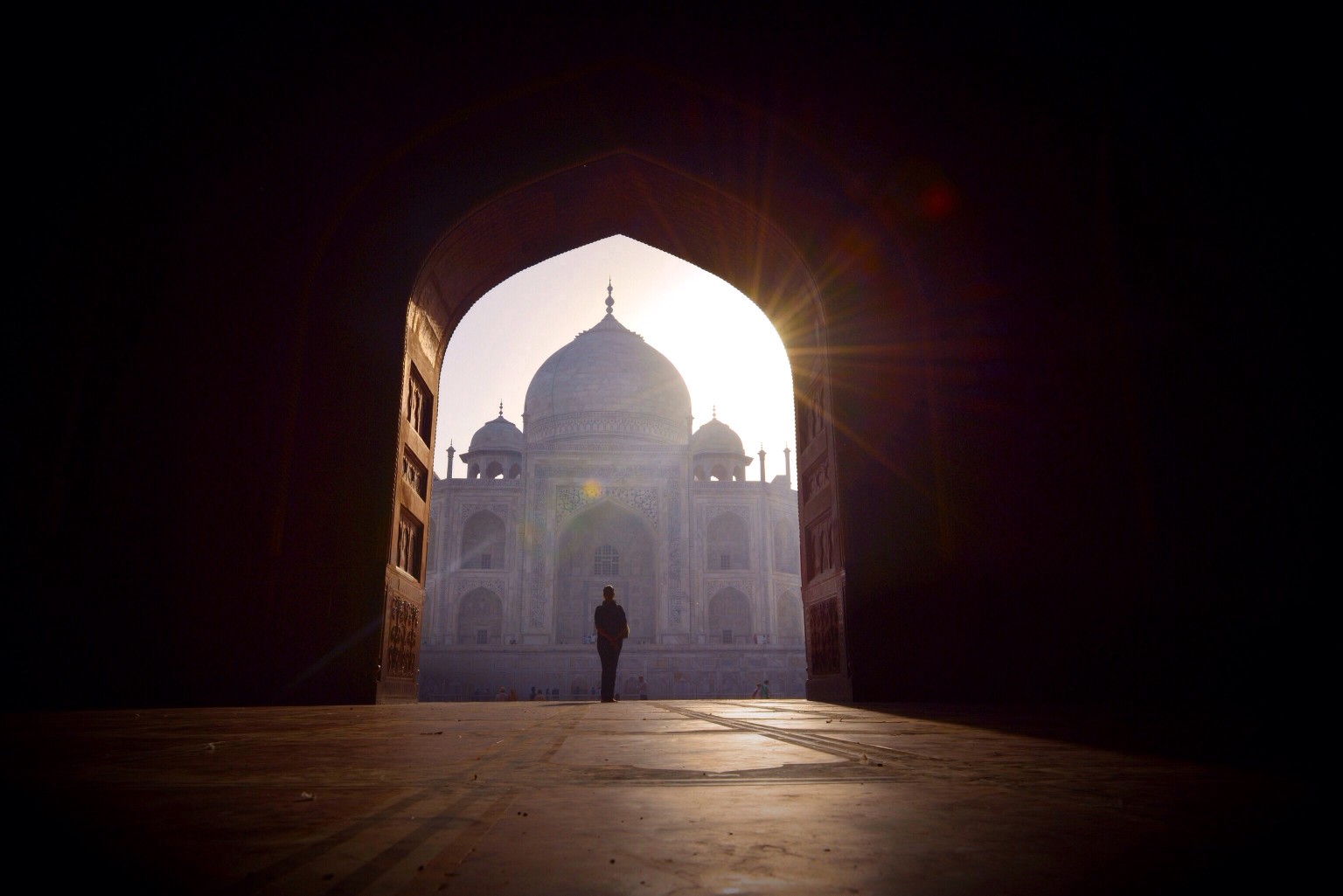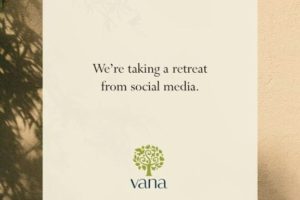In recent conversations, a new trend has become clear to us here at Dandelion Chandelier: for luxury travel experiences, word of mouth is the new social media. Analog is the new digital. Silence is the new shouting. How do we know this? Because some of the best luxury properties in the world have exited social media completely.
We recently interviewed a devotee of ultra-luxury destination health and wellness retreat Vana in Dehradun, India. It’s a unique and highly exclusive spa for the jet set (frequent guests call themselves “Vanavasis,”) and it’s not well known amongst the hoi polloi. Hearing about its many wonders made us keen to visit: the property’s website is filled with images of a dreamy tropical paradise where serenity might actually be within reach. Eager to share our discovery, we published our post and then set to work on our usual social media promotion for the post.
A curious thing happened on the way to social media, though. We went looking for the Instagram handle for the Vana retreat, and we couldn’t find one. How could this be?
We contacted our interview subject, and he reported back the following: “They are out of any social media. They don’t like to do promotion for their retreat at all. It is their philosophy.”
Say wha???? No promotion on social media? Are they crazy?
Our source sent us a photo that Vana Retreat posted online over a year ago: a simple placard stating “We’re taking a retreat from social media.” They posted it on their Facebook page for a couple of weeks. Then they shut down all of their accounts and disappeared.
We love counter-intuitive marketing moves, and we sensed a newsworthy trend emerging, so we decided to investigate further. We chatted up our far-flung correspondents, and it turns out that mystery is the new transparency, at least in some luxury precincts. Social media was supposed to result in the great democratization of luxury – no more velvet ropes, virtually or otherwise. Everyone was supposed to have access to everything, via sharing or at least via voyeuristic viewing online.
But somehow, that nirvana of accessibility has started to fade. A number of establishments that are open to the public – they’re not membership clubs – are essentially growing only via word of mouth. Which means you have to know someone. A friend described a secret club somewhere on the Lower East Side that she’d visited over the summer that has a hidden door, just like in Prohibition days. Lots of cool, plugged-in people go there. And if you haven’t been made privy to the secret, it’s because you’re not running with the right crowd. It’s a certainty that you won’t find the address to this place on Google.
We heard a similar story about private membership clubs from a friend living in Brooklyn — people are self-organizing into small clubs, some with clubhouses — that are known only to the members and their friends. There was a time when a new club wanted you to know all about it, and to see photos of fabulous people doing fabulous things there. Even if you couldn’t get in, they wanted you to know all there was to know about their membership experience. Now, private clubs are becoming . . . well, private. The Finals Clubs at Harvard may be coming to the end of the road, but plenty of other secret clubs and societies are popping up in wealthy precincts all over the world unbeknownst to nearly everyone.
And when you think about it, this makes perfect sense.
Scarcity is a core tenet of luxury, and a heightened level of mystery created by extremely limited distribution and promotion is a great way to create it. Hermes has been onto this strategy for decades – witness the years-long wait lists for Birkin bags. Chanel has a similar strategy, strictly controlling the numbers of each handbag produced each year. Our Paris Bureau Chief noted that a luxury “farm hotel” in the Western Cape wine region of South Africa called Babylonstoren pursues such an approach as well – they dictate how guests will experience their resort, and it’s either on their terms, or not at all. What works in romance works in retail: playing hard to get is extremely effective in getting what you want.
Exiting social media is also a fantastic way to control your brand image: if you have a vision for what your online aesthetic should be, why allow any user-generated content to pollute its purity? In a contrasting approach, Aman Resorts are all over Instagram, and perhaps not always in the way in which they’d like to be. Their Instagram bio reads “Welcome to Aman. 31 destinations in 20 countries. Tag your image #Amanjunkie or #Amanjunkies to be featured and credited.”
A coy sign essentially saying “we don’t want to feed the social media beast anymore” is a brilliant way to signal that a luxury property is actually serious about being a sanctuary for its guests. No selfies, no surreptitious photographing of fellow residents. And no consumer promotion that isn’t fully controlled by the brand.
Plus, there are a lot of people in the luxury class who are experiencing severe social media fatigue. Some of the jet set were never online to begin with. Others are heading for the exits. My cousin posted on Facebook just last week that he is thinking about disabling his account and taking a break. He feels “it may have run its course.” Are these all random coincidences? Or a trend in the making? Too soon to tell. Watch this space.
In the meantime, we know that the Greta Garbo strategy won’t work for every brand. But if the goal is absolute privacy, exclusively and attracting only the “right” people, pulling the veil over the operation online is a great sign of confidence. If you’re right for this experience, you’ll find it (or it will find you). And if not, you don’ even need to know about it. As luxury marketers, we respect that. Well played, Vana.
Join our community
For access to insider ideas and information on the world of luxury, sign up for our Dandelion Chandelier newsletter. And see luxury in a new light.


